
The Vakhtangov Theatre: Eugene Onegin
Venue:
Guangzhou Opera House - Opera Hall
1 Zhujiang Xi Lu Tianhe Guangzhou Guangdong
Date:
5/2/2019 - 5/4/2019
This ticket is only available as a paper ticket
After you have joined the waiting list, you will be notified if tickets become available via SMS.

The Vakhtangov Theatre: Eugene Onegin
5/2/2019 - 5/4/2019
Guangzhou Opera House - Opera Hall
1 Zhujiang Xi Lu Tianhe Guangzhou Guangdong
¥80 - ¥880
Paper ticket
Event details
Scan to join 247 Community Groups for chat, info and more!


- Receive Tickets via Express Delivery
- Fixed Date Ticket
- No Cancellation
- Russian with Chinese Subtitles
- Show Lasts 3.5 hrs (with 20 min intermission)
- All Attendees Require a Ticket
Rimas Tuminas in his production of “Eugene Onegin” does not aim at a full scenic adaptation of Pushkin’s novel in verse. For his main theme he chooses a story of Tatyana’s love for Onegin, a story with prologue and epilogue.
The performance unfolds in the memory and imagination of Pushkin’s characters. We are transferred from Onegin’s room into his country estate, then into the Larin’s house nearby, then to Moscow – and finally back to his room. The scale of events constantly changes: from noisy celebrations to secluded contemplation, from crowd scenes to lonely recollections, all of which are drawn together from the past just like the fragments of Tatyana’s love letter, framed and hung on the wall next to Onegin’s arm-chair.
The images in memory are split between past and present, between reality and imagination. Therefore, there are two Onegins on stage: the mature one recalling the events a quarter of century later and the second, younger one who takes part in them. There are two Lenskys on stage as well: the very young one as he was during the events, which led to his death in a duel and the second an imaginary white-haired companion of Onegin, the one whom Lensky could have become if he had not been killed. There is another character, not written by Pushkin but as if transported from the times of Pushkin's young years, from the golden age of the Russian culture – and aged just like Onegin. This is a retired hussar, dashing but crippled by war, intelligent but down-and-out, a drunkard reasoning about everything. He is granted the author’s voice and the right to intervene in the action in order to deliver “…reason’s icy intimations, and records of a heart in pain”.
“Eugene Onegin” was called “an encyclopedia of Russian life” in the XIX century: the scenes of everyday life, ideas, moods and habits of the Russian people in the capital and provinces are seen through Pushkin’s main storylines. Rimas Tuminas’ production also reaches out beyond the main plot. For instance, Tatiana’s name day celebration is enveloped in melancholy: it is Tatiana’s longing for her beloved as well as existential “Russian melancholy”, the subject of deep reflection for many poets and philosophers who perceived it as an expression of a sad, deeply nostalgic and purely Russian state of mind.
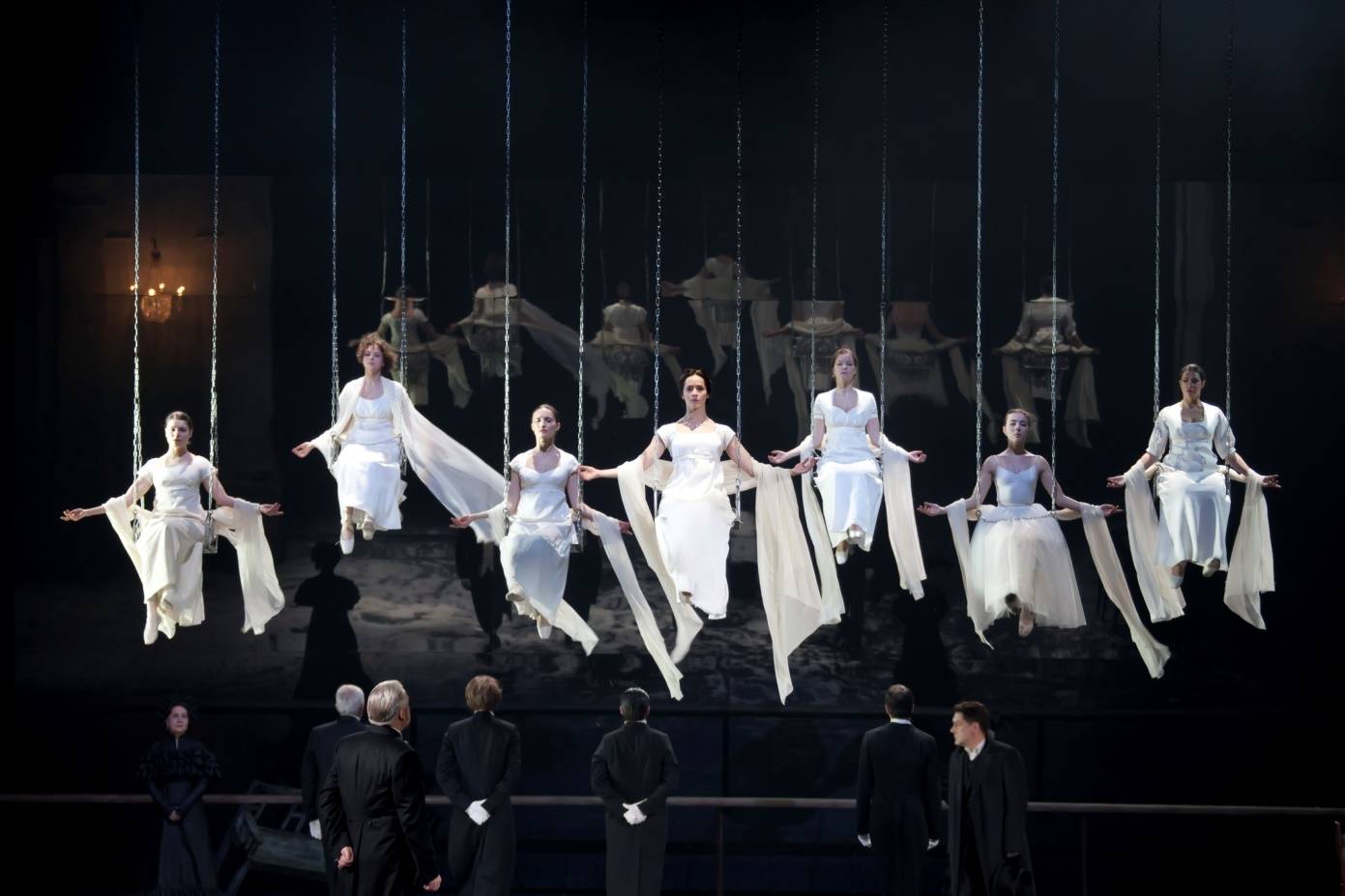
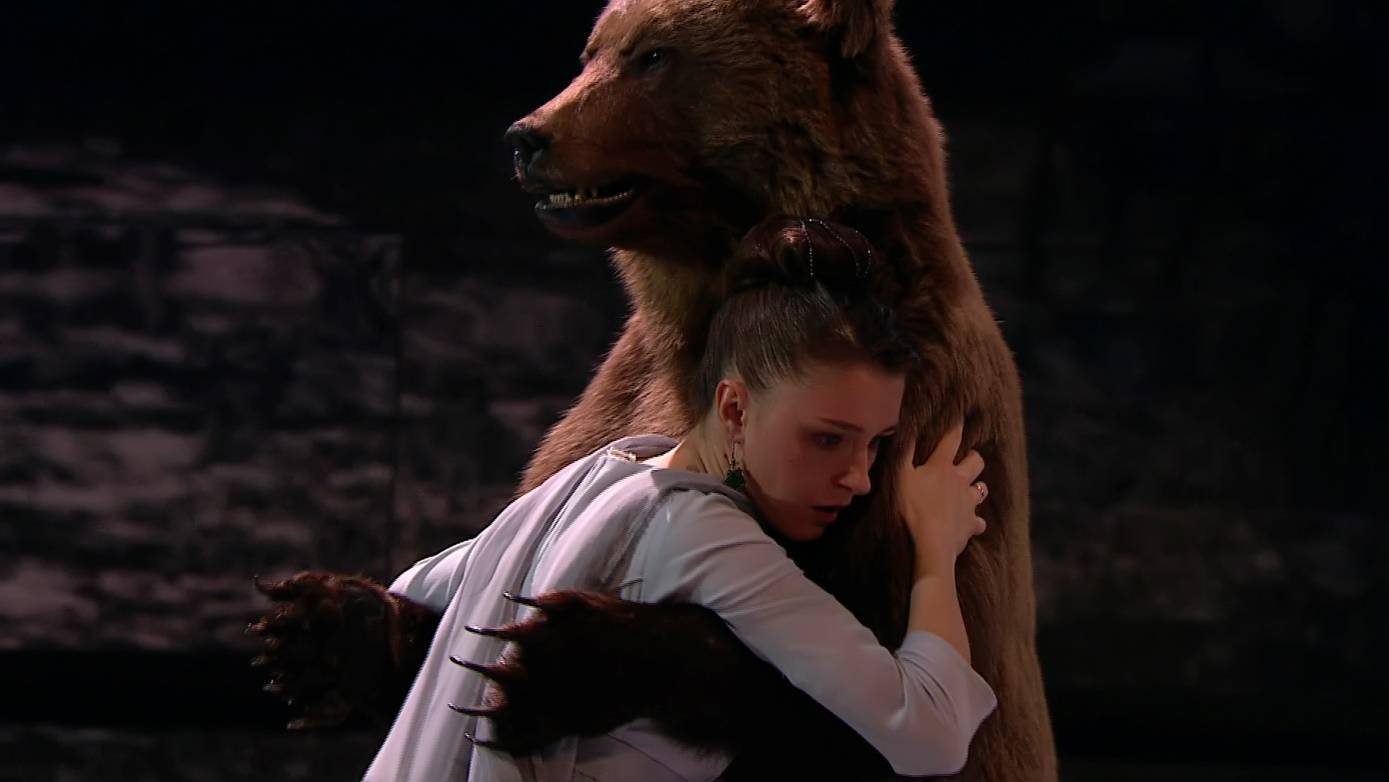
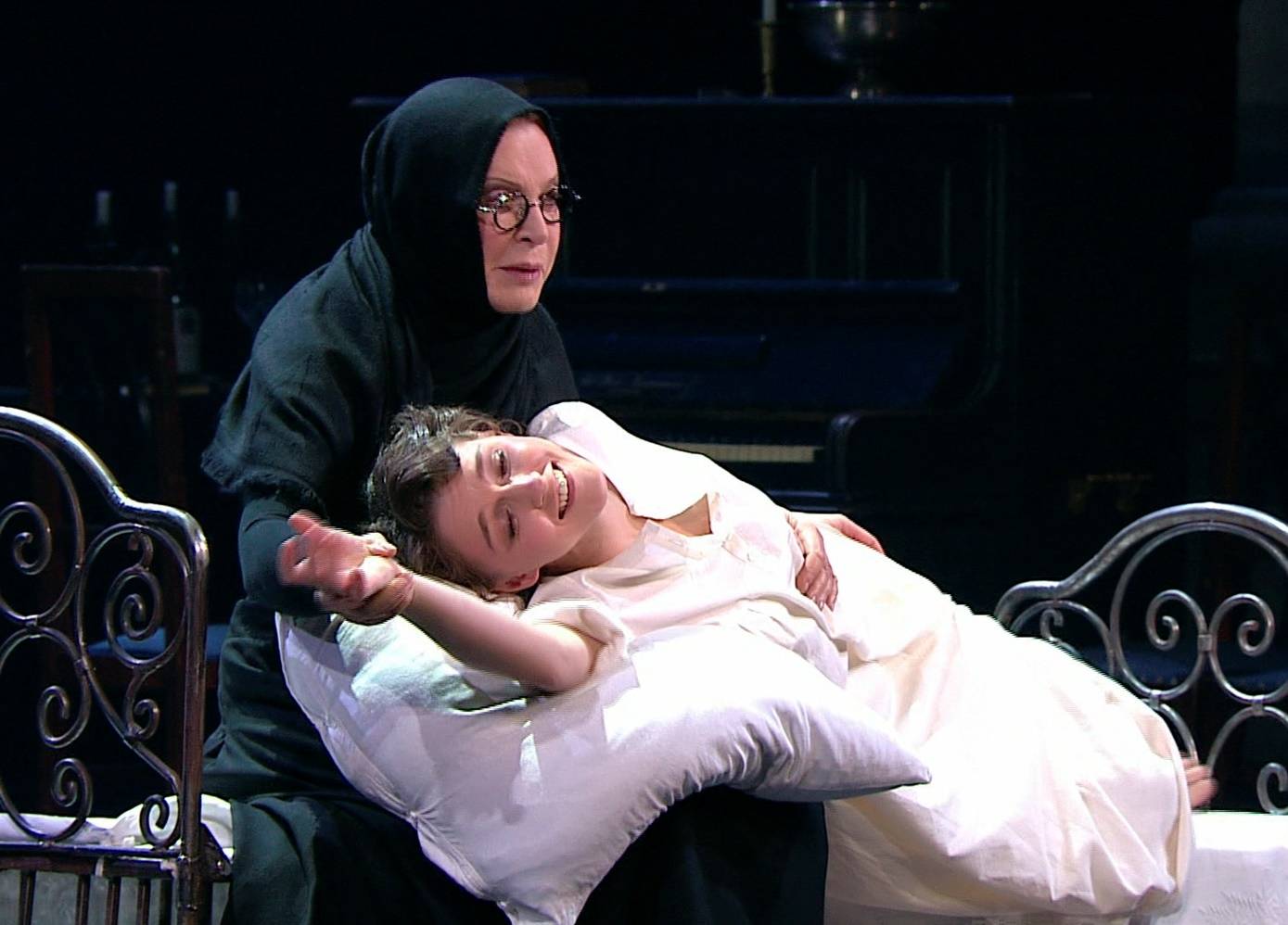
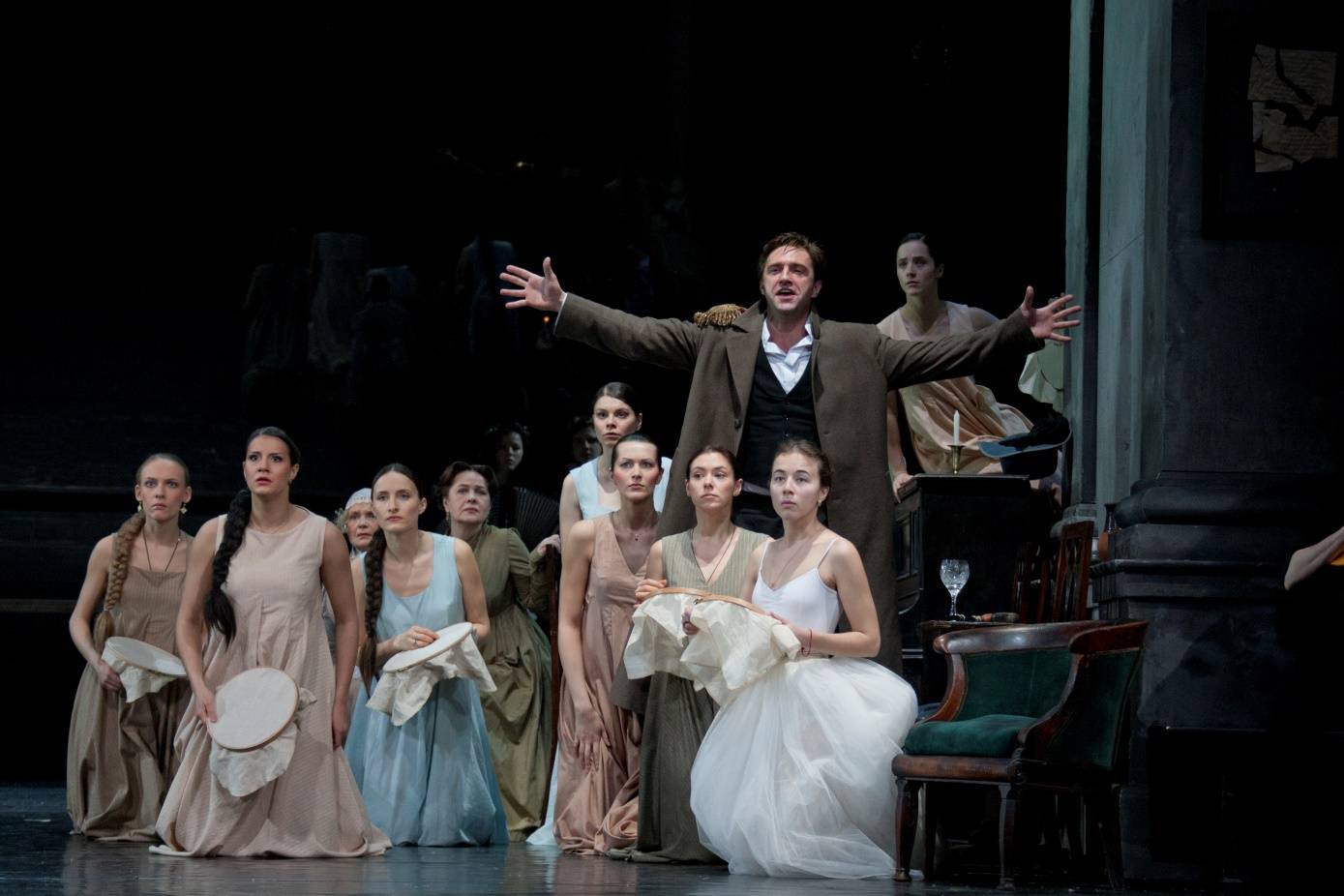
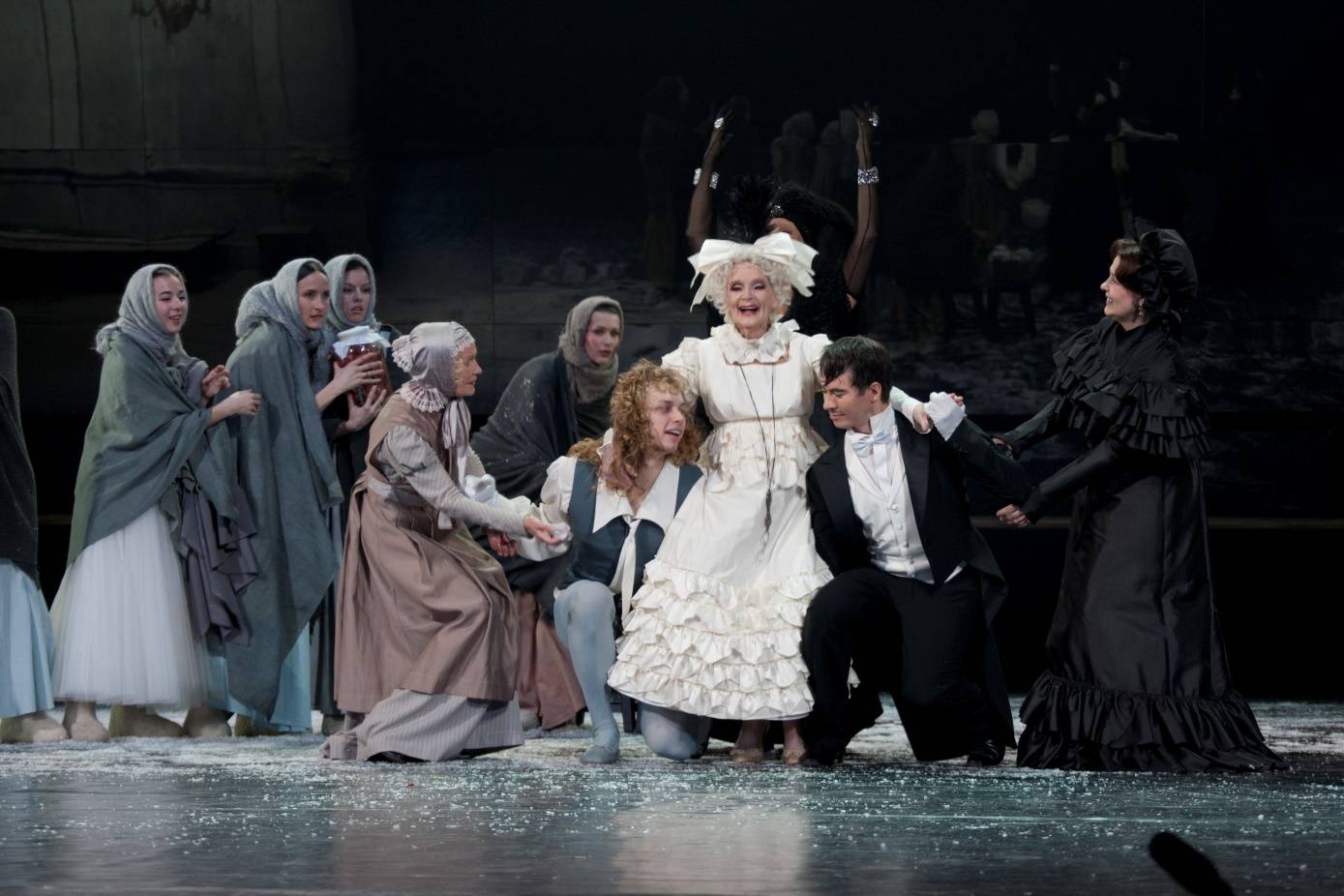
The idea, literary composition and staging: Rimas Tuminas
Set Design: Adomas Jacovskis
Costumes: Mariya Danilova
Music: Faustas Latenas
Choreographer: Angelica Cholina
Musical Director: Tatiana Agaeva
Lighting Designer: Maya Shavdatuashvili
Notice
Dates: May. 2 (Thu.) - May. 3 (Fri.) @ 19:30
Language: Russian with Chinese Subtitles
Duration: 210 mins (with 20 min intermission)
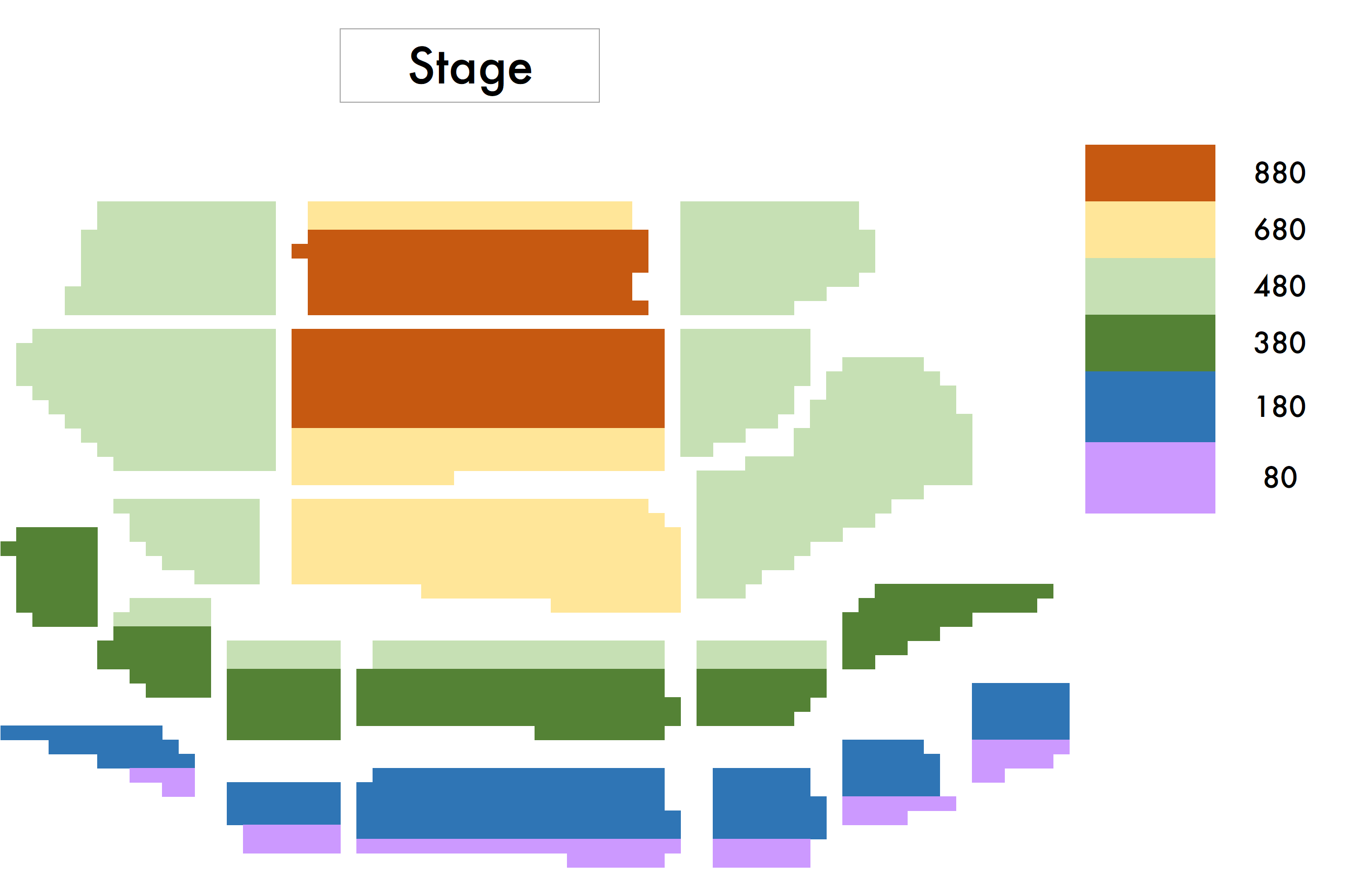

Follow our WeChat for event news, deals, gossip and more!
Book Now
The Vakhtangov Theatre: Eugene Onegin
Venue:
Guangzhou Opera House - Opera Hall
1 Zhujiang Xi Lu Tianhe Guangzhou Guangdong
Date:
5/2/2019 - 5/4/2019
This ticket is only available as a paper ticket
After you have joined the waiting list, you will be notified if tickets become available via SMS.
© 247tickets 2020 沪ICP备19024898号-2

 Add us on WeChat to speak to our friendly customer service team! ID: Tickets247Tickets
Add us on WeChat to speak to our friendly customer service team! ID: Tickets247Tickets